May 25, 2025 | 20:28 GMT +7
May 25, 2025 | 20:28 GMT +7
Hotline: 0913.378.918
May 25, 2025 | 20:28 GMT +7
Hotline: 0913.378.918
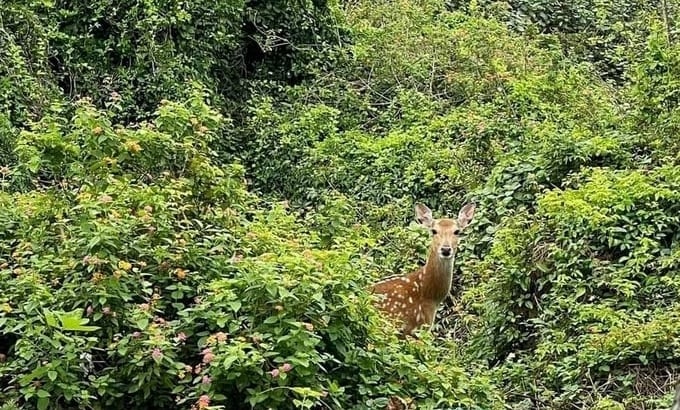
People discovered the individual sika deer on April 9. Photo: Dinh Muoi.
On April 10, Mr. Dao Minh Dong, Chairman of the People's Committee of Bach Long Vy island district, Hai Phong City, said that people had just discovered an adult sika deer on the island. Out of curiosity, they took photos and posted them on social networks.
Immediately after that, the information quickly spread on platforms, attracting public opinion. Many people expressed excitement and joy because on the island, with harsh weather, there are rare and valuable animals.
As soon as the information was received and verified to be accurate, the island district government issued a notice calling on units and people to join hands to protect wild animals on the island, absolutely not hunting.
"These are not natural deers but were bought by the Youth Volunteers from the mainland to raise on the island nearly ten years ago, along with some other animals. As for the deer herd, after escaping from the cage, there was no sign of them. Many people thought they were dead, but recently, they appeared again, and everyone was happy," Mr. Dong informed.
The sika deer is a member of the genus Cervus, a group of deer also known as the "true" deer, within the larger deer family, Cervidae. Formerly, sika were grouped together in this genus with nine other diverse species; these animals have since been found to be genetically different, and reclassified elsewhere under different genera.
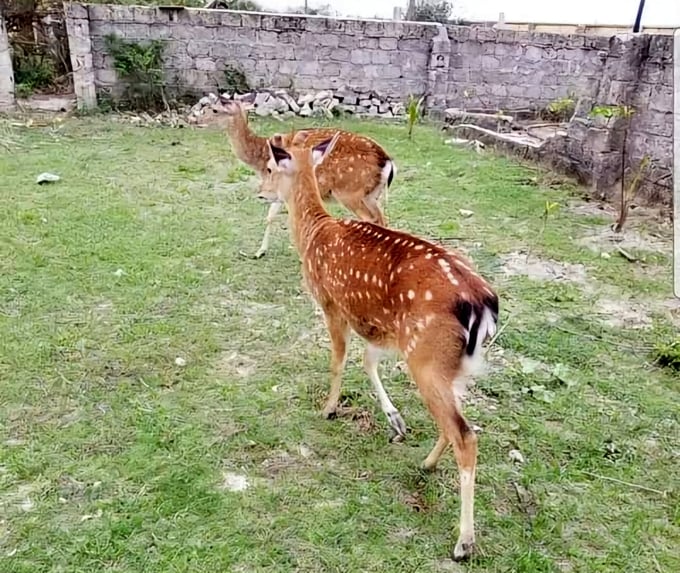
The sika deers on the first day were brought to Bach Long Vy island.
In 2017, the Youth Volunteer Group of Hai Phong City brought 4 individual sika deer and a group of monkeys to Bach Long Vy island to raise for the purpose of preserving and bringing a peaceful image to the frontline island.
After that, both deer and monkeys were released into the natural environment and lived scattered in the forests on the island. Monkeys sometimes come to catch people's chickens, so they are often chased away.
As for the deer herd, at first, it developed quite well, at one point, it grew to 6 animals. They occasionally stopped by people's vegetable gardens, but after a while, they did not appear. Only now have people seen 2 individuals.
“I have been on duty at Bach Long Vy for many years but have never met him. The fact that the deer herd is still alive today proves that the ecosystem, water source, and climate on the island are suitable for this animal, and can be completely developed to serve tourism," Mr. Nguyen Hoai Nam, Chief of Bach Long Vy Fishery Inspection Station shared.
Bach Long Vy is the furthest island from Vietnam in the Gulf of Tonkin, about 110km from Hon Dau, Do Son, Hai Phong. The island has a floating area running in the Northeast - Southwest direction of about 3km and a width running in the Northwest - Southeast direction of 1.5km.
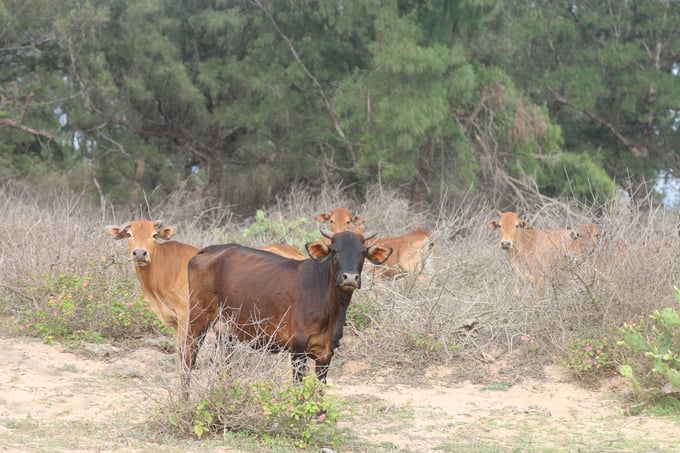
The climate on Bach Long Vy island is very harsh, making animal husbandry difficult. Photo: Dinh Muoi.
Because it is located in an area directly affected by the ocean climate and at the same time influenced by the tropical monsoon climate, the climate on the island is very harsh. This not only affects people's daily lives but also causes many difficulties in agricultural production. There are not many animal and plant species on the island.
Mr. Dao Minh Dong, Chairman of Bach Long Vy District People's Committee, further shared that, from practical difficulties in recent times, the island district government has always propagated to people, agencies, and units on the island to increase production to be somewhat self-sufficient in food supply. Besides, we always strictly protect wild animals and join hands to build a green, beautiful, and peaceful island.
Mr. Dong wishes to develop other rare animal species on the island to serve tourism and preserve and help increase the richness of the ecosystem. As for the sika deer herd, only female individuals have recently been discovered, with no signs of reproduction, so they need male deer to develop the herd.
"The island district is very difficult, so there are no plans to buy more deer to supplement the herd. However, if given, we are ready to receive and responsible for protecting and developing, especially the Rare animals because there are very few on the island," Mr. Dong expressed.
The sika deer (Cervus nippon), also known as the Northern spotted deer or the Japanese deer, is a species of deer native to much of East Asia and introduced to other parts of the world. Previously found from northern Vietnam in the south to the Russian Far East in the north, it is an uncommon species that has been extirpated in most areas of its native range, except in Japan, where it is overabundant and present in very large numbers.
Translated by Huong Giang

(VAN) Despite investment costs being 1.5 to 1.8 times higher than conventional methods, multi-story pig farming demonstrates outstanding effectiveness, increasing land-use efficiency by 4 to 10 times.

(VAN) Deputy Minister of Agriculture and Environment Phung Duc Tien leads a working delegation to participate in several key activities in China aimed at promoting agricultural and fisheries cooperation.
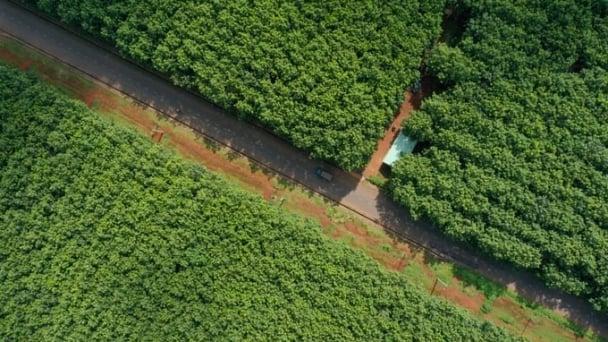
(VAN) The European Commission has just released a list of ‘low-risk’ countries for deforestation, which includes Vietnam.
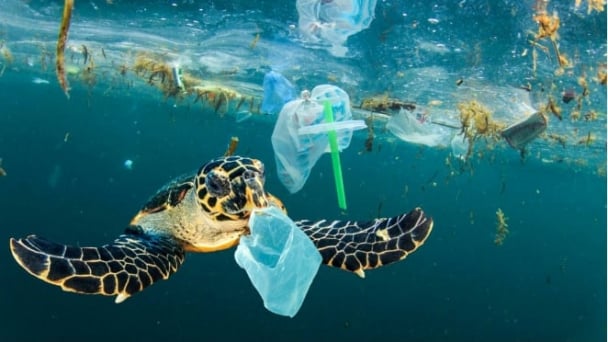
(VAN) The convenience of single-use plastics is leaving lasting consequences for the oceans.
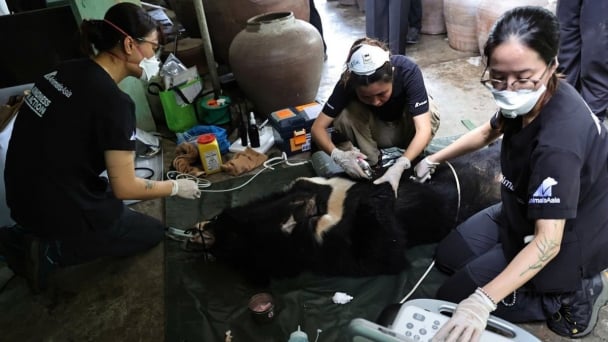
(VAN) On the morning of May 23, in Nghe An, the Animals Asia Foundation successfully rescued a Tibetan bear and transferred it to the Vietnam Bear Rescue Centre located in Bach Ma National Park.
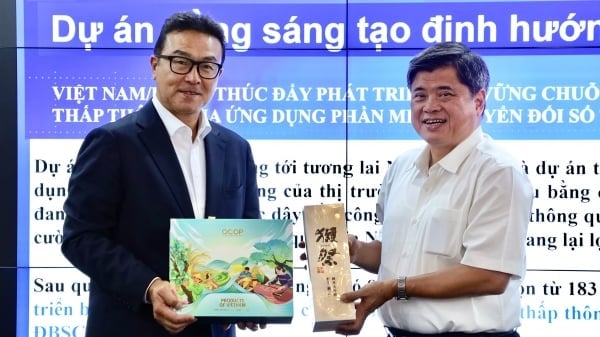
(VAN) On May 23, Deputy Minister of Agriculture and Environment Tran Thanh Nam held a working session with a Japanese delegation on the application of digital technology in agricultural production.

(VAN) In the tranquil wetlands of Van Long, there are quiet souls who guard the forests, nurture the waters, and oversee every bird and troop of langurs as protecting the essence of a living heritage.